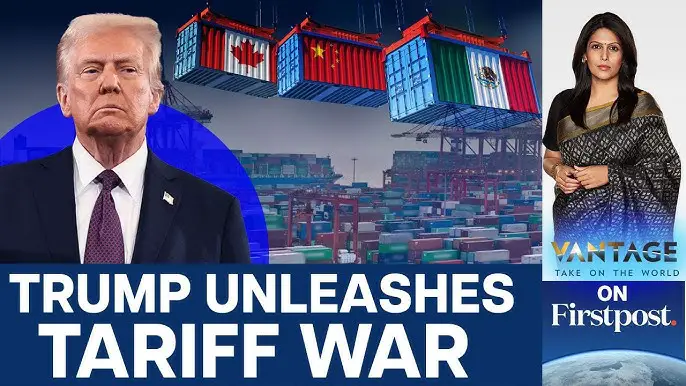
It would take a Sherlock Holmes to find any good economic news at the moment (the UK is mired in high debt, low growth and stubborn inflation) while the US is bracing for a possible recession as Donald Trump and his merry men (they’re mostly men) feed higher prices with a bizarre list of tariffs, while Elon Musk axes federal jobs and immigrants are turfed out.

S4 Capital’s Sir Martin Sorrell has already warned that those agencies dependent on Big Tech advertisers (like his) face an even grimmer 2025 as Trump tariffs hit even the moneybags of Silicon Valley. WPP has blamed some of its recent woes on tech advertisers cutting back too.
Now WARC has added to this gloomy chorus, suggesting $20bn is to be wiped off global adspend, with 2025 set to fall -0.9pp to +6.7% and 2026 reducing 0.7pp to +6.3%. On the face of it this doesn’t sound too bad and the global ad market in 2025 is still forecast to reach $1.15trn.
But a huge chunk of this goes to Google and the social media behemoths, leaving everybody else to fight for the leftovers. And there are more greedy mice at the table than ever before. The big ad holding companies are operating on tight margins with only Publicis and (maybe) Omnicom ahead of the game on about 5% and 4% growth respectively.
In a business with very few barriers to entry, there are tens of thousands of newish companies chipping away at the edges.
WARC’s James McDonald says: “The global ad market faces mounting uncertainty as trade tariffs, economic stagnation, and tightening regulation disrupt key sectors – leading us to cut growth prospects by $20bn over the next two years. Automakers, retailers, and tech brands in particular are now reigning in ad spend amid rising manufacturing costs and mounting supply chain pressures.
“Despite the growing volatility, digital advertising remains strong, led by three companies – Alphabet, Amazon and Meta – on course to control over half of the market in 2029. Regulatory scrutiny and uncertainty around TikTok’s future in the US further compound risks to growth.” He goes on: “Advertisers must be nimble in order to seize the initiative in this shifting landscape.”
Most, however, will not be. They’ll cut costs while they see if everything turns out as badly as feared. It could change of course, Trump and co. might see the light. Their previous over-excited corporate backers (including all the tech companies who lined up behind him at his White House inauguration) might have a word in his shell-like as their sales and profits dip and Wall Street takes a powder. Musk’s Tesla is one of the most exposed companies.
But gloomy growth predictions like these have a habit of being further revised – downwards.







